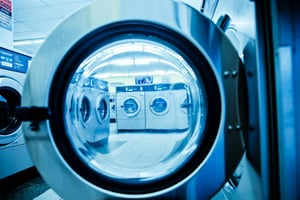Choosing the right refrigerator can significantly enhance your kitchen's functionality and...
Why Buying a French Door Refrigerator May Be a Bad Idea
1. Higher Cost
Initial Investment: French door refrigerators tend to be more expensive than traditional top-freezer or side-by-side models. The sleek design and added features, such as ice and water dispensers, contribute to the higher price tag. If you're on a tight budget, the initial cost of a French door refrigerator might be prohibitive.
Ongoing Costs: The advanced features and larger size of French door refrigerators can also lead to higher energy consumption, resulting in increased electricity bills. Additionally, maintenance and repair costs for these high-tech appliances can be more expensive due to the complexity of their components.
2. Space Requirements
Width and Depth: French door refrigerators are typically wider and deeper than other types of refrigerators. If you have a small kitchen or limited space, fitting a French door refrigerator into your layout might be challenging. The wider doors also require more clearance space to open fully, which could be problematic in tight spaces.
Height: The height of French door refrigerators can also be an issue, especially if you have low-hanging cabinets. Ensure you measure your available space accurately before considering this type of refrigerator.
3. Organization Challenges
Storage Layout: While French door refrigerators offer ample storage space, the layout can sometimes be less efficient. The wide, shallow shelves can make it difficult to store taller items, and the large doors may not be ideal for frequently used items, as you have to open both doors to access them.
Freezer Accessibility: The bottom freezer drawer in French door models can be less convenient than a traditional side-by-side or top-freezer layout. Bending down to access frozen items and the potential for items to get buried and forgotten at the bottom can be frustrating.
4. Potential for Malfunctions
Complexity: French door refrigerators come with advanced features such as ice makers, water dispensers, and touch screen controls. While these features are convenient, they also introduce more points of potential failure. Repairing these high-tech components can be costly and time-consuming.
Seals and Hinges: The French door design relies on multiple seals and hinges to function properly. Over time, these parts can wear out or become misaligned, leading to air leaks that affect the refrigerator's efficiency and cooling performance.
5. Cleaning and Maintenance
Hard-to-Reach Areas: Cleaning a French door refrigerator can be more challenging due to its design. The wide shelves and deep bins can make it difficult to reach the back and corners, and spills can be harder to clean up thoroughly.
Frequent Maintenance: The additional features, such as ice makers and water dispensers, require regular maintenance to prevent issues like clogs or mold growth. Keeping these components clean and functioning properly can be time-consuming.
6. Energy Efficiency Concerns
Higher Energy Consumption: Although many modern French door refrigerators are designed to be energy-efficient, they typically consume more energy than simpler, smaller models. The larger size and additional features contribute to this increased energy usage, which can impact your electricity bills and environmental footprint.
Conclusion
While French door refrigerators offer a modern look and convenient features, they may not be the best choice for everyone. Higher initial and ongoing costs, space requirements, organization challenges, potential for malfunctions, cleaning and maintenance difficulties, and energy efficiency concerns are all factors to consider before making a purchase. Assess your household's needs and priorities carefully to determine if a French door refrigerator is the right fit for you. By weighing the pros and cons, you can make an informed decision that best suits your kitchen and lifestyle.



